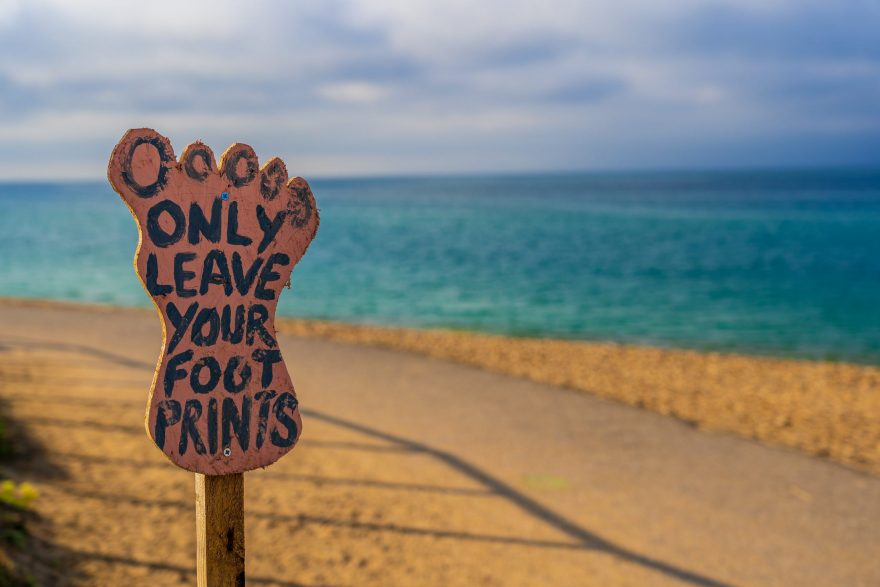What makes a product “good for the planet”
and what does sustainability mean to us.
In today’s world, we are surrounded by marketing claims, product labels, and recommendations from social media influencers. Almost everything carries some “green label” these days.
So, how do you distinguish which goods are really good for our planet? And which sustainable products are the best for you?
The answer might surprise you in a way, but it all comes down to your own lifestyle preferences. Because sustainability means different things to different people.
“Sustainability”
(noun): the quality of being able to continue over a period of time.
From the Cambridge dictionary
Bellow is how we consider a product sustainable at Goods For Planet to be listed on our website.

Photo by Nick Fewings on Unsplash
What is it made of?
Is it made of natural materials such as wood, leather, cotton, or wool, etc? Materials, which are simply put “nature made”, not “manmade”? Even further, are they biodegradable? These are materials that can decay by the action of living organisms (microorganisms) without releasing any harmful toxins.
Of course, even natural materials need to be sourced and processed by humans for the final product, but after their lifetime, their impacts on the environment are still low. In recent years, new materials are being developed, such as biodegradable plastics or plant-based PET.
When buying products from natural materials, look for sustainable certifications to ensure it was harvested and processed in a sustainable way. There is a big difference between organic and regular cotton for example.
Is it made from recycled material?
More and more brands these days use innovative materials made of recycled plastic or recycled fibers, such as recycled cotton. A great example can be Repreve fiber which is made of PET bottles and used by many big brands such as O’Neil, Patagonia, Roxy, and others. Many brands also have their own recycled PET fibers like Pinqponq. Some products only have part recycled content in combination with other materials, but it still takes some of the waste away from the landfills.
Is the product recyclable?
Think of glass, aluminum, metal, paper, fabric, and quality plastic. These materials can be collected via recycling programs, then broken down to create new source materials. Compare to upcycling they need additional resources in the process and usually turn out to be of lower quality than before (except aluminum), but they still keep waste out of landfills and decrease demand for new raw materials.
Is it an upcycled material?
Upcycling takes existing material and gives it a new use. Most of the time it needs little to no additional resources. One great example is the works of Looptworks, where you can shop for amazing things like bags made out of airplane seats or any bag or backpack made from Freitag, which utilizes used truck tarps.
BTW, those face masks everyone is sewing these days from leftover fabrics or linens at home? Yepp, you got it, that is upcycling too.
All great for the environment!
How is it made?
You might be familiar with the Fair Trade mark, but that is just one example of sustainable production. The use of alternative sources of energy, creating as minimal as possible waste (surplus material), or sustainable harvesting are other examples. More importantly, Fair Trade and other certifications guarantee, that a product maker is being paid equal pay and provided with a safe working environment. Look for B-corp, Oeko-Tex, Fair Trade, GOTS, and similar certifications.
Is it made locally and how far does it have to travel to you? That is one way you can help to sustain local business and lower carbon footprint from long overhaul shipping.
How long will it last?
Look for brands that offer supreme products made to last you a lifetime, and/or are offering free repairs, recycling, or upcycling programs. One of the main characteristics of sustainable apparel brands is that they create timeless pieces instead of trendy fast-fashion items that last you one season. This is where you might hear the term “capsule wardrobe” or “slow fashion” more frequently these days.
Is it an alternative to a single-use?
You might find some products listed on our site that don’t fall within the criteria mentioned above. Products made of BPA-free plastic, silicone, or polyester are not sustainable in their nature, but they are fulfilling one important purpose. They eliminate single-use products. Wheater it is your reusable plastic water bottle, silicone pouch for baby food, reusable coffee mug, or grocery bag, it keeps single-use out of waste. These products decrease demand for single-use, and therefore they have a go on our site and in your life.
Whichever of these sustainable criteria applies to you, use them when you are searching for new products. We are adding amazing products on a daily basis, so check us out frequently.


